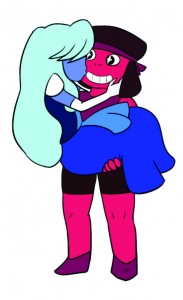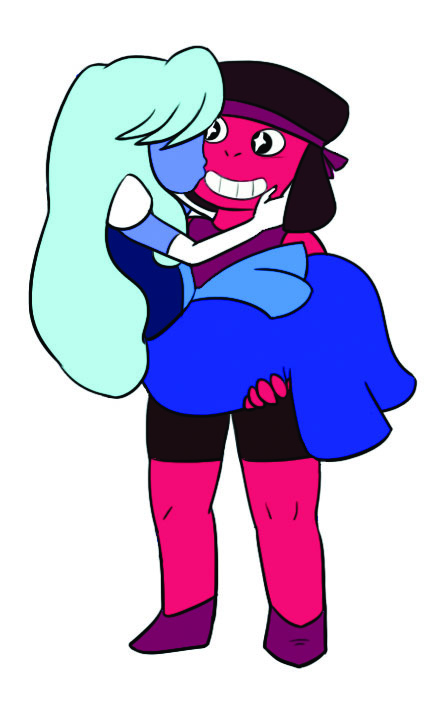
Children’s television has always had Easter egg jokes geared toward adults, ranging from celebrity references to thinly veiled sex jokes. Nowadays, a common practice in animated children shows across networks like Disney and Cartoon Network is hiding a deeper theme within their plot.
A major follower of this trend is the show Gravity Falls, currently airing on Disney XD. Gravity Falls deals with plots as simple Scooby-Doo style mysteries while also handling a portrayal of the apocalypse and therefore the death of every character. The show also deals with mature topics such as parental relationships, as the two main characters are children who are raised by their single great-uncle. Using this uncommon familial situation shows kids that it’s okay not to come from a nuclear household.
Another show that expresses non-traditional parental relationships is Steven Universe, currently airing on Cartoon Network. The show follows twelve-year-old Steven and his adventures with an alien species. Steven’s mother was a part of the alien species, but in order for her to have Steven, she had to sacrifice herself. Steven recognizes that his biological mother is gone, but he accepts the maternal role that the three alien lifeforms play in his life, breaking the heteronormative familial relationships that are frequently portrayed in the media.
Since the alien lifeforms are not human, they do not fit into the normal human gender binary. However, it is implied that the aliens are female through their feminine features. During one of the newer episodes, two feminine characters hug, kiss and sing about the love they share for each other. Breaking the heterosexual norm, this is one of the first children’s television program that openly portrays gay characters.
In 1997, an episode of Ellen was given a TV-14 rating because the host Ellen DeGeneres, kissed actress Laura Dern. Within 18 years, the mindset of American screenwriters has changed drastically.
A study done in 2005 by Massachusetts Institute of Technology found that the presence of gay characters in television shows decreases prejudices among viewers. The earlier that children are exposed to these types of non-traditional relationships, the better the future is for the LGBTQIA+ community in America.

